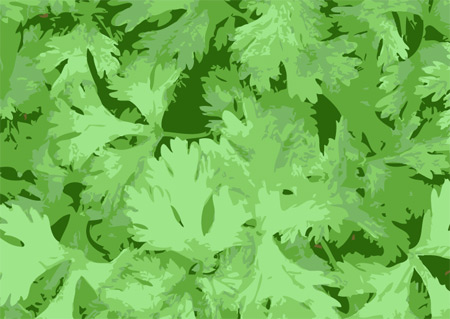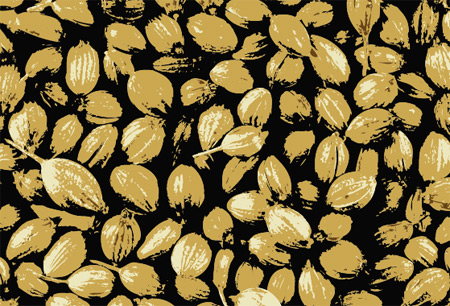As far as coriander health benefits are concerned, not many of us are thoroughly enlightened on them. We just recall it as being an important ingredient of spicy delicacies. Commonly known as Dhania or Chinese parsley or cilantro in many countries, it is utilized in 2 forms – leaves and seeds. Basically, the leaves are added to salads or various other curries to embellish them with the right flavor.
Sounds delicious, isn’t it? Well, as for coriander this is just an introduction, as we guide you through the body, you may wonder if these tiny leaves could actually be so helpful.
– Here are some of the health benefits of coriander:
Aids digestion – Those not feeling sufficiently hungry may benefit by consuming coriander seeds as it is known to trigger appetite. The seeds are also used for treating indigestion and gas problems. This is presumably one of the most known health benefits associated with coriander .
Reduces bad breath – In India, we see many people chewing coriander seeds as a way to refresh their mouths. People also chew it to avert bad or pungent tastes in the mouth.
Anti-bacterial activity – Coriander leaves and seeds contain certain chemicals that help combat salmonella infections. The latter are responsible for most stomach upsets encountered in day to day life such as nausea, diarrhea and so on.
Enhances good cholesterol – This benefit ought to top the list, considering how important it is to sustain the right kind of cholesterol at optimum proportions in the bloodstream. Coriander leaves are considered to raise good cholesterol levels and dampen bad cholesterol concentrations. Adults aiming to maintain healthy cholesterol levels in the body usually drink coriander water that is prepared by boiling water and adding dried coriander seeds to it. The seeds are then filtered after which the water is consumed.
Relieves inflammation – In terms of Ayurveda, coriander leaves are used to relieve something known as ‘Pitta’ which in other words is fire. The latter is solely responsible for all sorts of gastrointestinal difficulties observed in many adults. Even heartburn characterized by inflammation in the esophagus could be treated by fresh coriander leaves.
Helps treating chiken pox – We often wonder why our parents ask us to consume coriander soup when we were infected with chicken pox as kids. The simple reason is that it helps dampen the intensity of the rashes and aids in the treatment of the condition. Mostly, carrots and coriander leaves are boiled to serve as ingredients for the soup.
Skin benefits – Coriander juice is also used for treating acne and other skin issues like blackheads and dry skin. It is usually used in combination with turmeric or mint juice for nourishing the skin. However, professionals caution that it may not be right for all skin types as some may develop allergic reactions to it.
Treats fever and conjunctivitis – Not many of us know that coriander has a cooling impact on the body. This is precisely the reason why it is known to lower temperatures and treat fever. It is also this very same cooling effect that works for almost every other health benefit seen in the article. Even in cases of typhoid, the herb can be relied on. Each one of us who has encountered conjunctivitis at least once in our lives will probably understand how difficult it can get. This herb can also be used as an eye wash for easing the burning sensation, intensity and pain of the infection.
Combats urinary tract infections – Often, elders suffering from urinary tract infections complain of a burning sensation in the bladder. This veggie apparently alleviates this feeling and promotes more and easy flow of urine.
Eases menstrual problems – This herb may also help girls experiencing heavy menstrual bleeding accompanied by elevating pain. Coriander seeds supposedly work towards reducing these symptoms.
If you are wondering how the roster comfortably glided to reach 10 coriander health benefits, then the courtesy undoubtedly goes to the bunch of essential oils, vitamins and antioxidants coriander leaves and seeds include. However, do not opt for self-treatment as an active support from a health care professional is always safer, specifically in cases of diseases like typhoid and chicken pox. So for all those who think how these fragile leaves could ever be of any use to them, it looks like the right time to put on the thinking cap.


